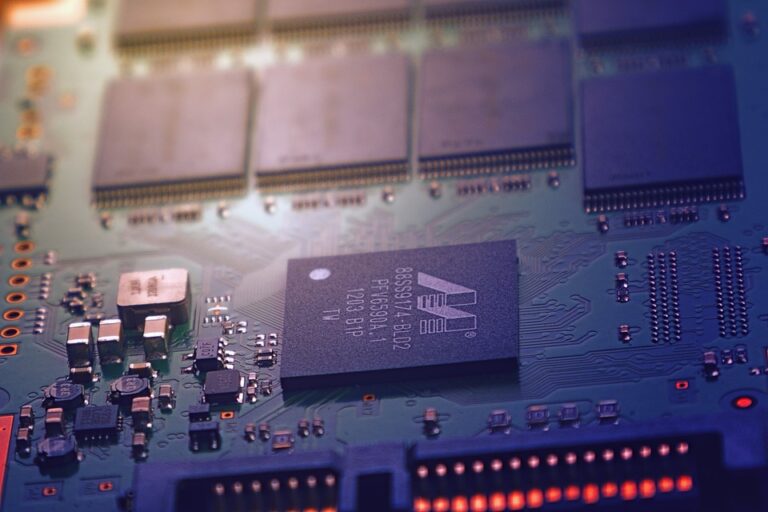Blockchain Technology: The Potentials & Challenges

In recent years, blockchain technology has emerged as a groundbreaking innovation that promises to transform a myriad of industries. Initially popularized by its association with cryptocurrencies like Bitcoin, blockchain technology’s decentralized nature has far-reaching implications that extend beyond digital currency.
Understanding Blockchain: A Basic Overview
At its core, blockchain is a distributed ledger technology that records transactions across a network of computers. This decentralized nature ensures that the data cannot be altered retroactively without the consensus of the network, making it highly secure and reliable.
The technology is named ‘blockchain’ because it consists of blocks of data that are chained together in chronological order. Each block contains a cryptographic hash of the previous block, a timestamp, and transaction data.
The Decentralization Advantage
One of the most significant advantages of blockchain technology is its decentralization. Unlike traditional centralized systems, where a single entity has control over the data, blockchain distributes control across a network.
This distribution enhances security and transparency, as no single point of failure exists. Moreover, decentralization empowers individuals by giving them control over their data and transactions.
Applications of Blockchain Technology
While cryptocurrencies brought blockchain into the spotlight, its applications extend far beyond digital currency. Here are some areas where blockchain technology is making a significant impact:
Financial Services
The financial services industry stands to gain immensely from blockchain technology. By enabling faster and more secure transactions, blockchain can reduce costs and increase efficiency.
Smart contracts, which are self-executing contracts with the terms of the agreement directly written into code, further enhance the potential of blockchain by automating and streamlining processes.
This can lead to a more transparent and efficient financial system, reducing the need for intermediaries.
Supply Chain Management
Blockchain technology is revolutionizing supply chain management by enhancing transparency and traceability.
By recording every transaction on the blockchain, companies can track the movement of goods in real-time, ensuring authenticity and reducing fraud. This level of transparency helps build trust between businesses and consumers, leading to more ethical and sustainable supply chains.
Healthcare
In the healthcare sector, blockchain technology is being used to create secure and interoperable systems for storing and sharing patient data. By providing a tamper-proof record of patient history, blockchain can improve data accuracy and patient privacy.
Furthermore, decentralized systems can facilitate research and development by allowing secure and efficient sharing of data among researchers and institutions.
Real Estate
Real estate transactions can be complex and time-consuming, often requiring multiple intermediaries. Blockchain technology has the potential to streamline these processes by providing a transparent and secure platform for recording property transactions.
Smart contracts can automate the transfer of ownership, reducing the need for intermediaries and minimizing the risk of fraud.
The Challenges Facing Blockchain Technology
Despite its potential, blockchain technology faces several challenges that need to be addressed for widespread adoption. Scalability, energy consumption, and regulatory uncertainty are some of the key issues that need to be tackled.
Scalability
Current blockchain networks can struggle with scalability, as the processing of transactions can be slow and resource-intensive. As more users join the network, the demand on the system increases, potentially leading to congestion and increased transaction times.
Solutions like sharding and layer 2 protocols are being developed to address these scalability issues.
Energy Consumption
Blockchain technology, particularly proof-of-work-based systems like Bitcoin, requires significant energy consumption.
The environmental impact of this energy usage has raised concerns, prompting the exploration of more sustainable consensus mechanisms, such as proof-of-stake, which consumes significantly less energy.
Regulatory Challenges
The regulatory landscape for blockchain technology is still evolving, with many governments grappling with how to effectively regulate decentralized systems. Clear and supportive regulatory frameworks are essential for fostering innovation while ensuring consumer protection and compliance with existing laws.
The Future of Blockchain Technology
The potential of blockchain technology is vast, and its impact on various industries is only beginning to be realized. As technology continues to evolve, we can expect to see further innovations and applications that we cannot yet imagine.
The integration of blockchain with emerging technologies like artificial intelligence and the Internet of Things (IoT) could unlock even greater possibilities, creating a more interconnected and efficient world.
Conclusion
Blockchain technology holds the power to revolutionize the way we conduct transactions, store data, and build trust in the digital age. Its decentralized nature offers unparalleled security and transparency, making it a valuable tool across various industries.
While challenges remain, the continued development and implementation of blockchain technology promise a future where transactions are more secure, efficient, and trustworthy.
As we move forward, embracing the potential of blockchain technology will be crucial for staying at the forefront of innovation and progress.






